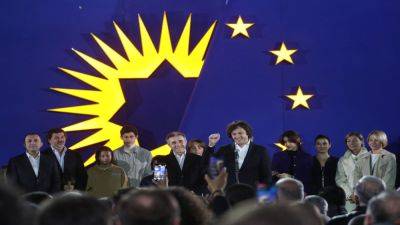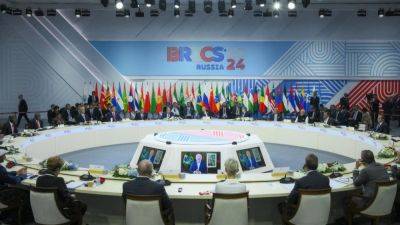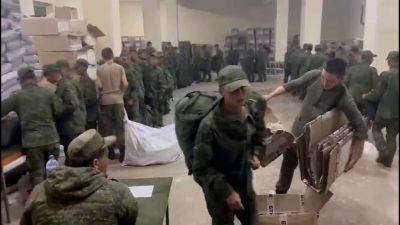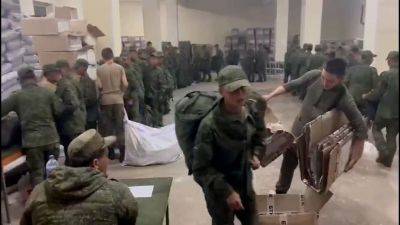Georgia's election forces voters to choose between a future with Russia or Europe
Parliamentary elections in Georgia this weekend have been described as the vote "of a lifetime" that will determine whether the country moves toward Russia or the West.
The vote on Saturday is being closely watched for whether the ruling "Georgian Dream" party — which has morphed from an expressly pro-Western grouping over its 12 years in power to a decidedly pro-Russia one in recent years — can hold on to office, or whether it will unseated by pro-Western opposition parties.
Voter polls in the run-up to the vote are considered unreliable as they have generally been commissioned or conducted by pro-opposition or pro-government groups. There's also the possibility that none of the parties on the ballot paper will be able to form a government on its own and a coalition will be necessary.
Close watchers of Georgian politics say Saturday's election is a pivotal moment for a country that, like other former Soviet republics, has found itself pulled between a future aligned with Russia or the West, and where political polarization has become pronounced.
"All sides agree the upcoming elections are a critical moment for Georgia's future," Ketevan Chachava, non-resident fellow at the Center for European Policy Analysis, said in commentary earlier this month.
"The governing Georgian Dream Party's rhetoric toward the West — its founder, Bidzina Ivanishvili, calls the West the "party of war" and says it forced Georgia and Russia into confrontation — has alarmed pro-European groups, international partners and observers, highlighting a broader struggle between pro-European and pro-Russian forces," she noted.
The Georgian Dream-led government has enacted various policies of late that have gone against the grain of its previous ambitions to







